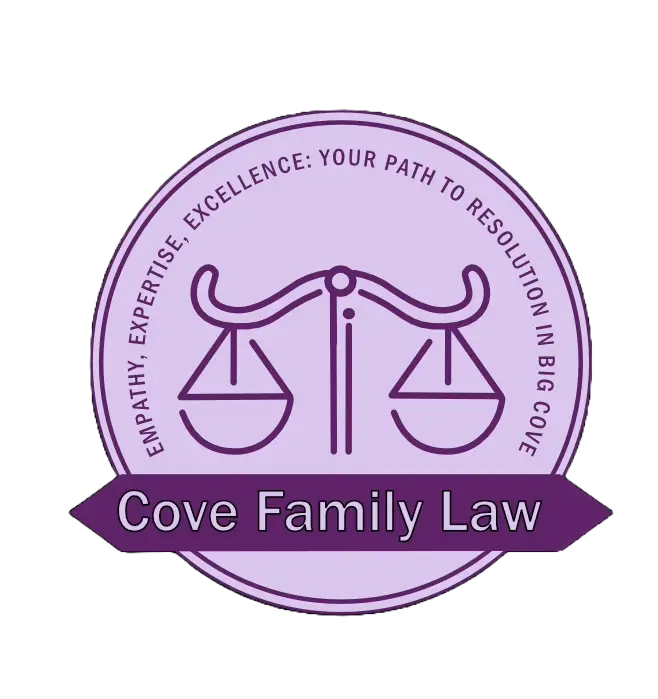When facing family legal disputes in Alabama, many people assume that going to court is their only option. However, mediation offers a powerful alternative that can save time, money, and emotional stress while helping families reach mutually beneficial agreements. As both legal professionals and families increasingly recognize its benefits, mediation has become an essential tool in resolving family conflicts outside the courtroom.
What is Mediation?
Mediation is a confidential process where a neutral third party—the mediator—helps disputing parties communicate effectively and work toward voluntary agreements. Unlike a judge who makes binding decisions, a mediator facilitates discussion and guides parties toward solutions they create themselves. The mediator doesn’t take sides or impose outcomes but rather creates a safe environment for productive dialogue.
In Alabama, mediation can address virtually any family law matter, including divorce proceedings, child custody arrangements, property division, spousal support, and post-divorce modifications. The process empowers families to maintain control over their outcomes rather than leaving critical decisions in the hands of a judge who may not fully understand the unique dynamics of their situation.
The Financial Benefits of Choosing Mediation
One of the most compelling reasons families choose mediation is the significant cost savings compared to traditional litigation. Court battles can stretch for months or even years, with attorney fees, court costs, and expert witness fees accumulating rapidly. A contested divorce in Alabama can easily cost each party tens of thousands of dollars, while mediation typically resolves cases for a fraction of that expense.
The efficiency of mediation drives much of these savings. While litigation involves lengthy discovery processes, multiple court appearances, and extensive preparation time, mediation sessions are focused and productive. Most family disputes can be resolved in just a day or two, sometimes even a matter of just a few hours. This concentrated approach means fewer billable hours and faster resolution.
Additionally, mediation reduces indirect costs that families often overlook. Time away from work for court appearances, childcare expenses during legal proceedings, and the emotional toll that affects productivity and well-being all contribute to the hidden costs of litigation. Mediation’s streamlined process minimizes these secondary expenses.
Beyond Cost: The Comprehensive Advantages of Mediation
While cost savings alone make mediation attractive, the process offers numerous other benefits that enhance family outcomes. Privacy stands as a major advantage—mediation sessions are confidential, while court proceedings become part of the public record. Families can discuss sensitive matters without concern that their personal details will become accessible to anyone who requests court files.
The collaborative nature of mediation also tends to preserve relationships, which is particularly important when children are involved. Parents who mediate their divorce or custody arrangements often maintain better co-parenting relationships than those who engage in adversarial court battles. This improved communication benefits everyone, especially children who don’t have to witness their parents in an antagonistic legal fight.
Mediation also provides flexibility that courts cannot offer. Judges must follow legal guidelines and precedents, but mediated agreements can be creatively tailored to fit specific family circumstances. Parents might agree to unique custody schedules that accommodate work situations, educational needs, or family traditions—arrangements that a court might not consider or approve.
The speed of mediation represents another significant advantage. While court dockets are crowded and hearings may be scheduled months apart, mediation sessions can be arranged quickly based on the parties’ availability. This responsiveness is particularly valuable when time-sensitive issues arise, such as relocation decisions or urgent custody modifications.
How Mediation Works in Alabama
The mediation process in Alabama typically begins when both parties agree to participate, either voluntarily or through a court referral. Many courts now require mediation attempts before allowing certain family law cases to proceed to trial, recognizing the process’s effectiveness in resolving disputes.
The mediator first explains the ground rules, emphasizes confidentiality, and helps parties identify the issues that need resolution. Subsequent sessions between the mediator and each party focus on exploring interests, generating options, and negotiating agreements. Throughout this process, parties can consult with their individual attorneys, ensuring they understand their legal rights and the implications of proposed agreements.
When parties reach agreements through mediation, those agreements can be formalized into legally binding documents.
Addressing Common Concerns About Mediation
Some people hesitate to try mediation because they worry it won’t work in their situation. They may believe their case is too complex, their spouse is too unreasonable, or the power imbalance is too great. However, skilled mediators are trained to handle these challenges. They can manage difficult personalities, address power imbalances, and break complex issues into manageable pieces.
Another common concern involves the misconception that mediation means compromising on important principles or accepting unfair outcomes. In reality, mediation empowers parties to advocate for their interests while working collaboratively toward solutions. No one is forced to accept any agreement, and parties can withdraw from mediation if they feel the process isn’t serving their needs.
Some people also worry that mediation might not be appropriate in cases involving domestic violence or abuse. While mediation isn’t suitable for all situations, trained mediators can assess whether the process is safe and appropriate for specific circumstances. When power imbalances or safety concerns exist, mediators can implement safeguards or recommend alternative approaches.
The Role of Legal Representation in Mediation
While mediation is less adversarial than litigation, having qualified legal guidance remains important. Attorneys who understand both mediation and traditional litigation can help clients prepare for sessions, understand their rights and options, and evaluate proposed agreements.
The best outcomes often occur when families work with legal professionals who are experienced in both mediation and family law litigation. This dual expertise ensures that mediated agreements are legally sound while taking advantage of the process’s collaborative benefits.
Making the Choice That’s Right for Your Family
Every family situation is unique, and the decision between mediation and litigation should be based on specific circumstances, goals, and relationships. However, for many Alabama families, mediation offers a path to resolution that preserves dignity, reduces costs, and creates outcomes that better serve everyone’s long-term interests.
The key is working with experienced professionals who can assess whether mediation is appropriate for your situation and guide you through the process effectively. When conducted skillfully, mediation doesn’t just resolve current disputes—it can also provide families with communication tools and problem-solving strategies that serve them well into the future.
At Cove Family Law and Mediation, I understand that family disputes require both legal expertise and compassionate guidance. I have thorough training, relevant experience, and offer comprehensive mediation services for families at every stage of the legal process. Whether you’re considering divorce and want to explore mediation before filing suit, or you need to modify existing court orders and prefer a collaborative approach to returning to court, I am here to help you find the path forward that best serves your family’s needs. Contact me today to learn more about how mediation might benefit your specific situation.


